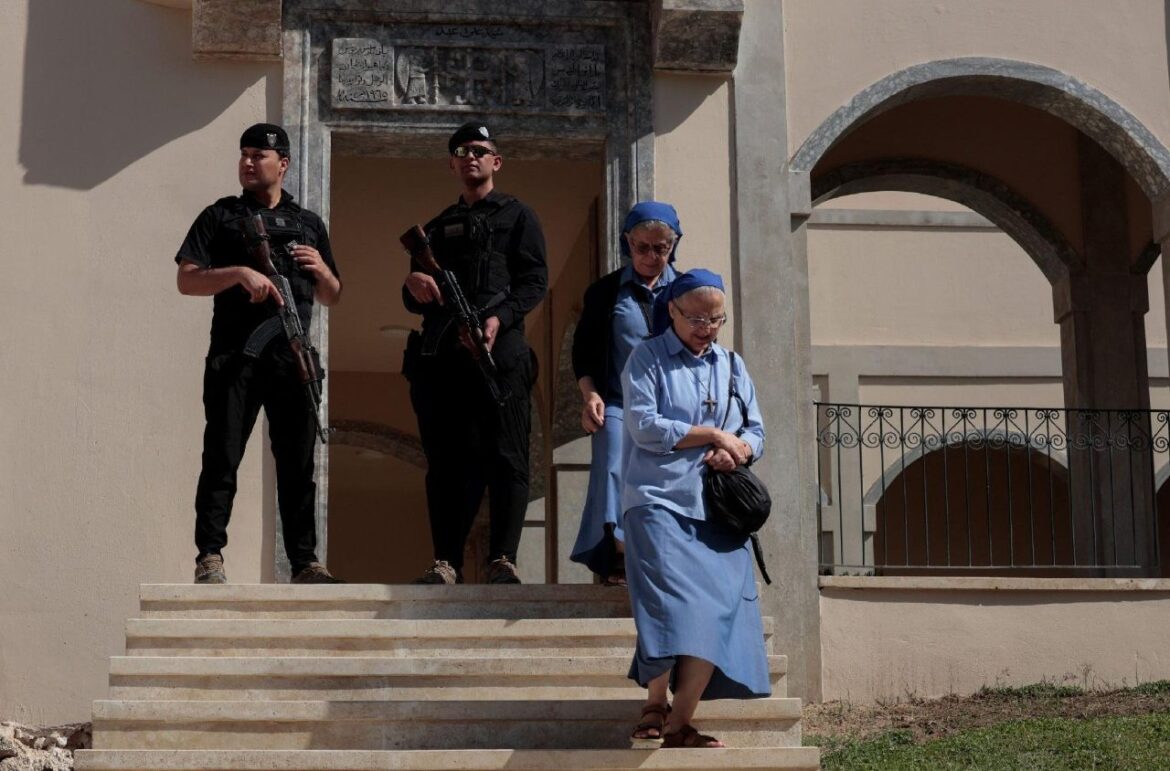In the heart of Mosul’s Old City, politicians, clergymen and members of the faithful gather to reinaugurate the Mar Toma and Al-Tahira churches, which had been vandalised and destroyed by so-called Islamic State.
By Joseph Tulloch – Mosul
When ISIS seized power in northern Iraq in 2014, they declared Mosul—Iraq’s second-largest city, built on the ruins of ancient Nineveh—their capital.
Holy sites belonging to Iraq’s many minority groups—Christians, Yazidis and others—were desecrated, and believers forced to flee.
When the city was finally liberated in 2017, after a year-long siege, the few residents who returned found their homes destroyed and religious buildings vandalised.
A ‘sign of hope’
What followed was a long, painstaking process of reconstruction, far from straightforward and still far from complete. Yet yesterday, Wednesday 15th October, marked a significant milestone in the process, with the inauguration of two restored historic churches in the heart of Mosul’s Old City.
“These churches are our roots, our history,” Patriarch Louis Raphaël Sako, the head of Iraq’s Chaldean Church, told journalists. “We need to keep them alive.”
Local politicians, Christian clergy and members of the faithful had packed the Syriac Orthodox Church of Mar Toma, which dates back to the 7th century, and the 18th century Chaldean Church of Al-Tahira.
The former had been used as a prison by so-called Islamic State, which also heavily damaged the 13th-century Door of the Twelve Apostles, sculpted from farsh, a local marble.
Fadi, 27, is one of the Franco-Iraqi team that worked on the restoration of the door. A Christian and resident of Mosul, he trained for three years before beginning work on the project.
The reopening of the churches is “a sign of hope,” he told Vatican News. “It shows the Christians living abroad that things are better here now, that they can move back home”.
The renovations
The church of Mar Toma was reconsecrated in an Orthodox ceremony last week, while the reconsecration of Al-Tahira is scheduled for later on Thursday. The inaugurations, on the other hand, were a secular event, marking the official reopening of the churches’ doors to Mosul’s public and the end of a restoration project begun in 2022.
A major player in this project was ALIPH, a fund dedicated to protecting and rehabilitating cultural heritage across the globe. For the restoration of the two churches, ALIPH worked together with L’Oeuvre d’Orient, a French Catholic charity primarily focused on serving Christians in the Middle East.
“Today is a great celebration not only for Mosul’s Christians, but for all its inhabitants”, said Msgr. Hugues de Woillemont, Director General of L’Oeuvre d’Orient.
“Worship will begin here again”, he said. “And the church bells”—once a well-known feature of Mosul’s urban soundscape—“will ring out once more”.




